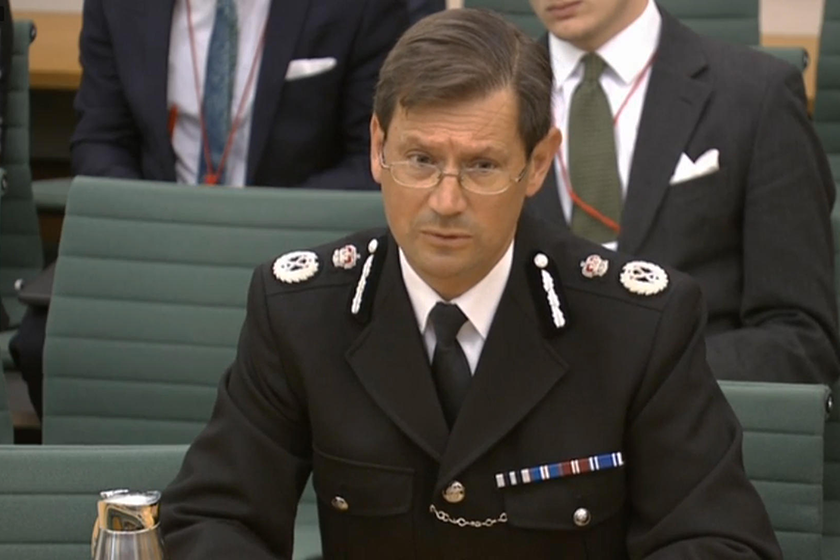How to protect clients amid increasing HMRC enquiry activity
With enquiry activity increasing as HMRC pursues a £42 billion tax gap, and the department’s enquiry tactics...
READ MORE
A Serious Fraud Office (SFO) and National Crime Agency investigation has resulted in three arrests after the collapse of Signature Group in 2020. As the SFO cracks down on large-scale fraud, we find out what you can do to protect your practice.

The appointment of former Metropolitan Police Assistant Commissioner Nick Ephgrave QPM as Director of the Serious Fraud Office has heralded a crackdown as he applies the authority of his agency.
International property investment scheme Signature Group collapsed in 2020 with reported losses of £140 million.
The group was known for buying up landmark properties across the UK for redevelopment, many of which are now empty and derelict. Thousands of investors, promised returns between eight and 15 per cent, were left out of pocket.
A subsequent SFO and National Crime Agency (NCA) investigation has so far resulted in three arrests.
It is one of four investigations led by the SFO’s new Director Nick Ephgrave QPM since he joined the organisation in September 2023.
“Fraud wrecks lives and undermines the economy,” Ephgrave said on his first day in the role. “I am committed to building the strong, dynamic and pragmatic authority the UK needs to fight today’s most heinous economic crimes.”
The scale of fraud and money laundering is vast, according to the UK’s Economic Crime plan 2019–22. The (NCA) National Strategic Assessment 2019 estimates that serious and organised crime costs the UK economy at least £37 billion a year and that there are 4,542 known organised crime groups operating in the UK.
In February, the International Auditing and Assurance Standards Board (IAASB) proposed revising auditing standards to increase responsibilities related to fraud protection and detection. IAASB Chair Tom Seidenstein said at the time that while the standard focuses on auditors, “many participants in the financial reporting ecosystem, particularly management and those charged with governance, have a role in preventing fraud”.
Ephgrave told the Guardian following the February arrests that the Signature Group inquiry is an “active criminal investigation”, explaining that his agency was working to “reconstruct exactly what happened”.
As the investigation continues, it illustrates the investment risks faced by IFA members. And whatever the outcome of the investigation, the discourse illustrates the need for accountants to have rigorous processes in place to detect fraud, and protect themselves and their clients.
IFA members are gatekeepers and the first line of defence to prevent illicit funds finding their way into the UK economy. This article will explain why you need to care about due diligence, best practices and how to get help to ensure compliance.
Accountants with a robust understanding of the regulations and who closely examine their clients’ investment plans can act to protect both their clients and the economy from investment risk and fraud.
Andrew Tennant, Director at Gentium UK Limited, was formerly part of the IFA’s Anti Money Laundering (AML) Compliance and Review Team and has worked within law enforcement for almost three decades. He says there is inherent risk in public practice accounting, as a lot of accountants acquire new clients through referral from existing clients. The danger is that the accountant believes they know the client through that relationship, when in fact every client needs to undergo a rigorous due diligence process.
This certainly means more than asking for a copy of the person’s passport and a utility bill, which can be counterfeited or generated through artificial intelligence software.
Tennant shares his own experience banking with one of the big high street banks – upon opening his account at the age of 18, he was required to supply a photo ID and proof of his home address. In the 30 years since, he’s changed his address three times, gotten married and formed a business, and the only updates at the bank were through his declarations.
“When I formed my business six years ago, I rang the bank to obtain a number of business accounts,” he says. “I was never asked what my business was, except the name. I receive invoice payments through cryptocurrency channels and payments from a number of high-risk countries such as Pakistan and Albania. I’ve never once been asked about my source of wealth or for details of these transactions. How are they not raising a red flag?”
Understanding your clients’ source of wealth is at the heart of the client due diligence, believes Tennant.
“You should know your customer to the point where if something happens out of the ordinary you would have that red flag and be in a position to report if required.”
Identifying those “red flags” means having a comprehensive due diligence process in place.
Customer due diligence must be undertaken before a client is fully engaged, and then should be repeated on a regular basis and when events or changes in client circumstances suggest an update is necessary.
Having conducted several audits of accountants, Tennant has identified common shortcomings:
“Regulations are not there as a guide. They are there to be complied with,” Tennant says. “Failure to comply can leave you open to exploitation by criminal groups, [and] open to fines from regulators or even prosecution.”
IFA Director of Professional Standards Tim Pinkney co-hosts the AML Matters webinar series, a programme of practical webinars addressing compliance, risk assessment, policies and procedures, and more. Find out more.
